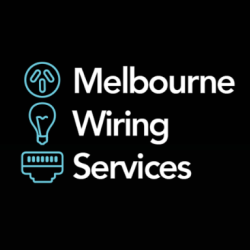At What Age Should a House Be Rewired?
As a homeowner in Melbourne, ensuring the safety and functionality of your house’s electrical system is crucial. One of the most important aspects of this is knowing when it’s time to consider rewiring your home. While it might not be a task that comes to mind frequently, understanding the signs and appropriate timing for house rewiring can prevent potential hazards and costly repairs in the future.
This article will explain the essential details of house rewiring, helping you make an informed decision about your home’s safety.
Why House Rewiring is Important
Rewiring a house is essential for maintaining electrical safety, improving energy efficiency, and ensuring that your home’s electrical system is up to date with current standards. Old or faulty wiring can lead to electrical issues, such as frequent power outages, flickering lights, or even fire hazards.
Moreover, modern homes have higher energy demands due to the increasing number of appliances and devices, which older wiring systems may not be equipped to handle.
How Age Affects Your Home’s Wiring
The age of your house plays a significant role in determining whether rewiring is necessary. In general, homes that are more than 30 years old should be inspected for potential rewiring. This is because older homes were often wired with materials and techniques that may not meet today’s safety standards. For example, houses built before the 1980s often used aluminium wiring, which is more prone to overheating and electrical fires compared to modern copper wiring.
If your Melbourne home was built several decades ago and hasn’t been rewired, the wiring is likely outdated and potentially unsafe.
Even if your home’s wiring appears to be functioning properly, It's essential to have it inspected by a licensed electrician to ensure it complies with current Australian safety standards.
Signs That Your House Needs Rewiring
Frequent Circuit Breaker Trips or Blown Fuses
If you regularly reset circuit breakers or replace blown fuses, this could be a sign that your wiring is struggling to handle your home’s electrical load.
Flickering or Dimming Lights
Lights that flicker or dim when you use certain appliances might indicate an overloaded circuit or faulty wiring.
Warm or Discolored Outlets and Switches
Outlets and switches that are warm to the touch or show discolouration may indicate dangerous wiring issues.
Burning Smell or Sparks
If you notice a burning smell or notice sparks from an outlet, turn off the power immediately and contact an electrician. These are clear signs of dangerous wiring issues.
Old or Damaged Wiring
If your home has visible old or damaged wiring, such as frayed or cracked wires, it’s time to consider a full house rewire.
Lack of Grounding
Many older homes need proper grounding, which is essential for electrical safety. If your home’s outlets only have two prongs instead of three, this could indicate a lack of grounding and a need for rewiring.
The Rewiring Process: What to Expect
Rewiring a house is a significant project that involves replacing all the electrical wires in your home and upgrading your electrical outlets, switches, and possibly your electrical panel. The process usually begins with a licensed electrician's thorough inspection of your current electrical system.
The rewiring involves removing the old wiring and installing new cables, safety switches, circuit breakers, and other components.
Depending on the size and complexity of your home, the rewiring process can take anywhere from a few days to a few weeks. It’s important to work with experienced electricians who are familiar with Melbourne homes and can ensure that the work is done in compliance with Australian standards.
After the rewiring is complete, you’ll receive a compliance certificate confirming that your home meets all electrical safety regulations. This not only ensures your safety but also adds value to your property.
Cost of House Rewiring
Factors Influencing Cost
Size of Your Home: Larger homes generally require more materials and labour, increasing the overall cost.
Complexity of the Job: Homes with complicated layouts or existing electrical issues may need more time and expertise.
Quality of Materials: Higher-quality wiring, safety switches, and other materials can increase the price but ensure durability and safety.
Average Cost Range
Expect to pay between $5,000 to $15,000 for a full house rewire in Melbourne.
Why It’s Worth the Investment
Improved Safety: Outdated wiring poses fire hazards and other risks, making rewiring a crucial safety measure.
Increased Energy Efficiency: Modern wiring can handle today’s energy demands more efficiently, reducing electrical waste and lowering energy bills.
Enhanced Property Value: A newly rewired home is more attractive to potential buyers, offering peace of mind and compliance with current standards.
Don’t wait until electrical issues become serious problems.
If your home is over 30 years old or you're experiencing signs of faulty wiring, it’s time to reach out to professional electrical services for a free consultation. Our licensed electricians will thoroughly inspect your home’s electrical system and recommend the most effective rewiring solutions. Your safety and satisfaction are our highest priorities.
Secure Your Home with Expert House Rewiring in Melbourne
Don’t risk electrical hazards; trust Melbourne Wiring Services for professional house rewiring in Melbourne.
Our experienced and licensed electricians are ready to ensure your home meets all safety standards. Contact us today for a free quote and secure your home’s electrical system with our reliable services.



